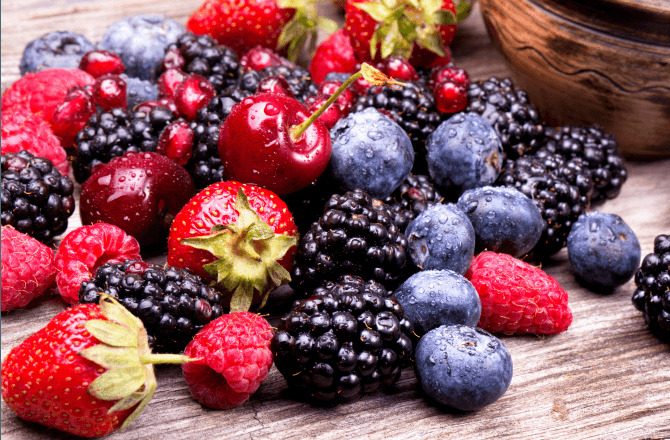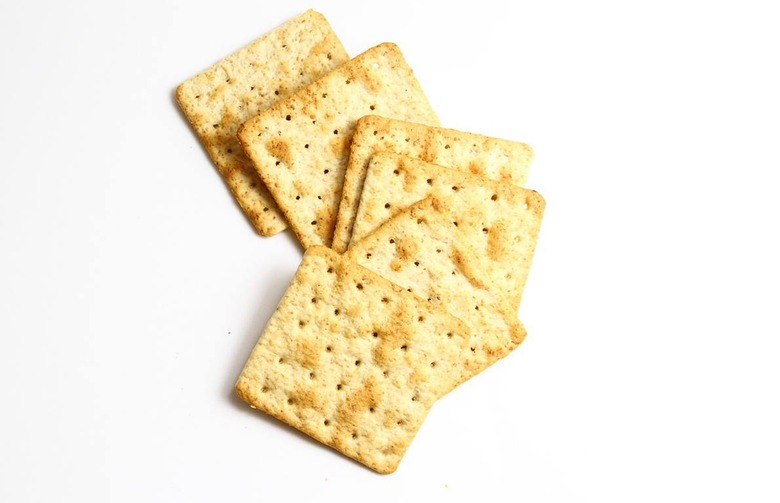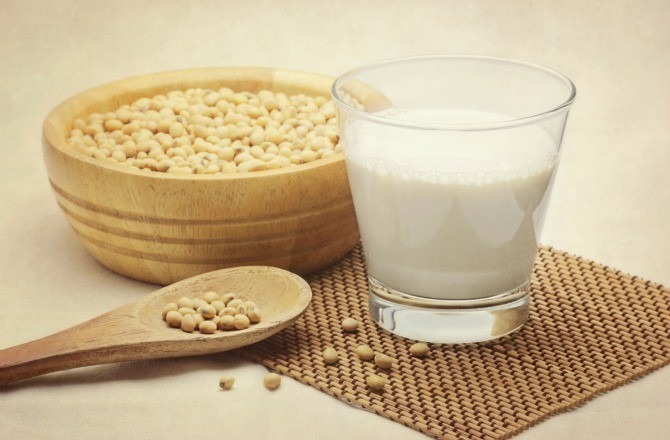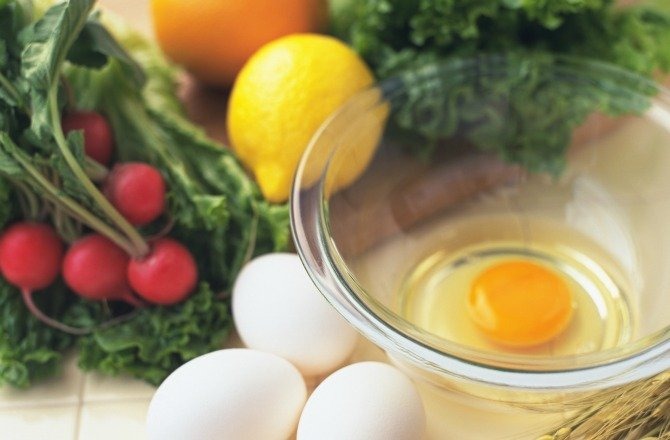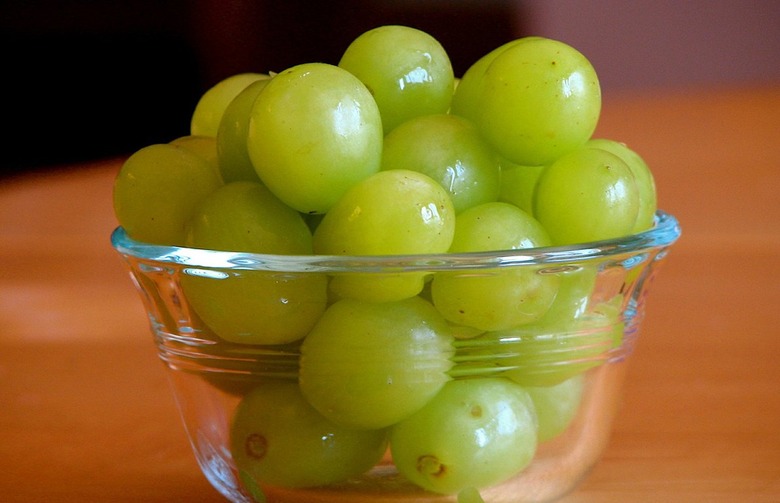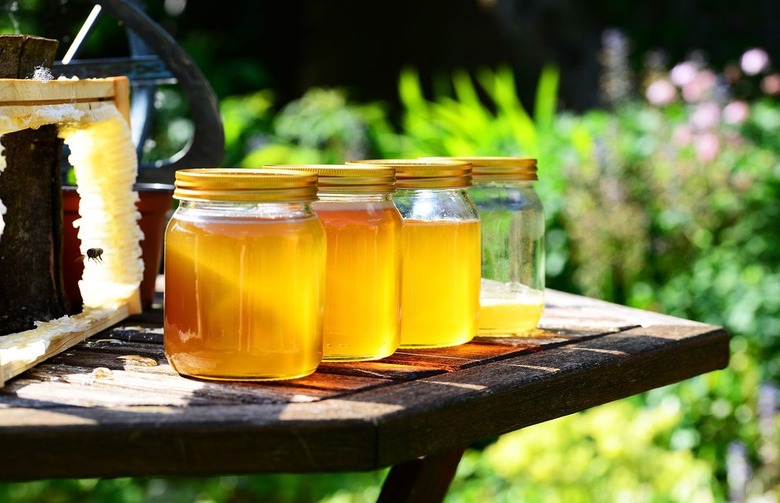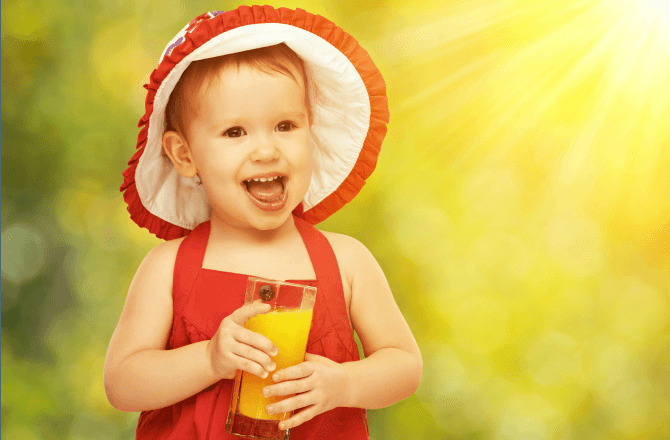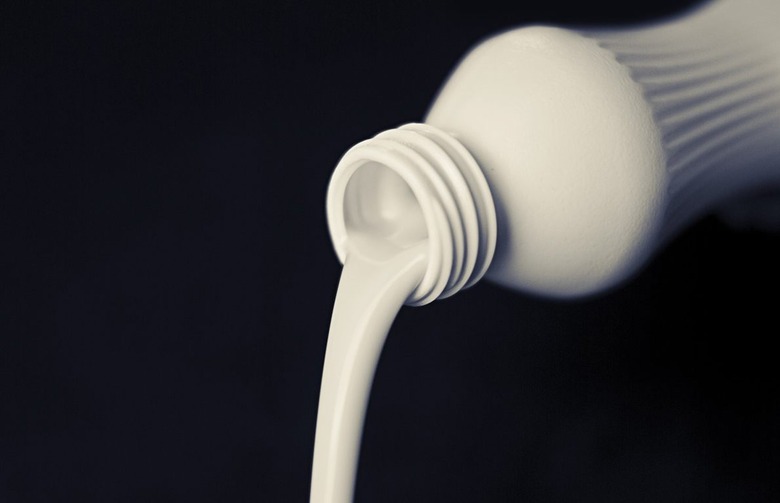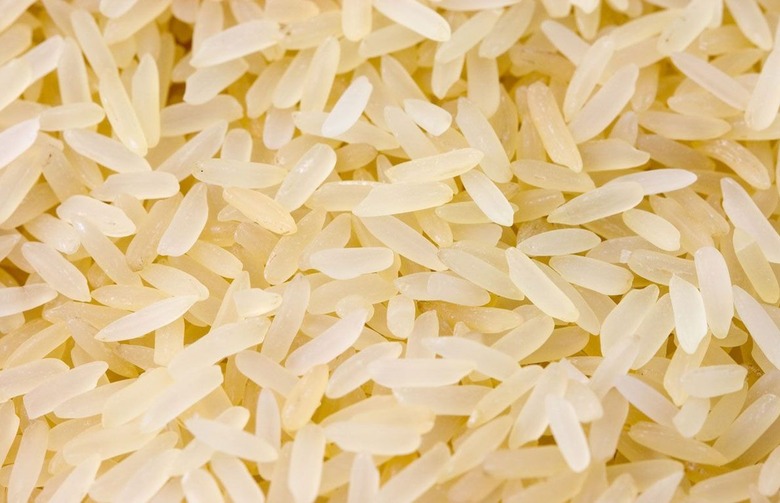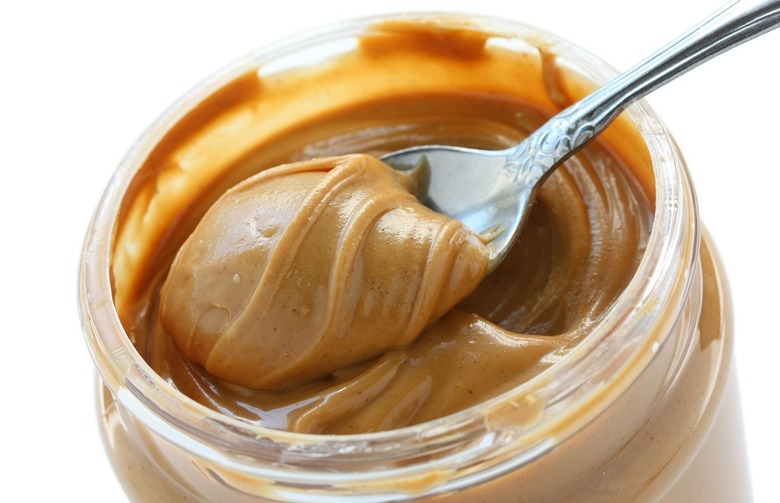10 Foods You Should Never Feed Your Baby
"Once it's time to introduce solids, you can begin filling out your baby's diet with a wide variety of complex nutrients and flavor profiles of real, wholesome—and preferably organic—foods they can touch, taste, and smell," Alan Greene, MD and Pediatric Advisor for Plum Organics, told The Daily Meal. "Babies benefit from the exposure to new flavors and textures that solid foods provide. To ease the transition, you'll ideally continue breast-feeding while your baby starts solid foods. As you introduce the first solids to your baby, there are a few foods you will want to avoid, but most are safe to enjoy!"
Berries and Citrus
Although fruits are encouraged for people at any age, strawberries and other berries contain a protein that is hard to digest by infants and early toddlers. Citrus fruits can be hurtful to the stomach as well. After he or she is a year old, this is a very healthy snack option. Just be sure to chop it into small pieces!
Bland Foods
"Feed babies the flavors you want them to learn to love," Greene said. "While many doctors are catching up, there's still a misguided notion out there that babies need to start with simple, bland foods and build up to more complex flavors slowly, but new research shows us that bland food can be counterproductive and that choosing bright, complex flavors during pregnancy and the first 12 months can help babies develop an appreciation for foods that are good, and good for them."
Cow’s Milk and Soy Milk
According to an article reviewed by the BabyCenter Medical Advisory Board, breast milk or formula should be the only type of milk given to your baby before he or she turns one. Babies are unable to digest the protein in cow's milk or soy milk, and both contain minerals that could damage the baby's kidneys.
Egg Whites
Although eggs are nutritious and a great source of protein, egg whites are allergenic and most doctors do not recommend giving them to babies that are less than a year old. Egg yolks on the other hand are not allergenic and can probably be given to babies at around 10 months.
Hard and Round Foods
In terms of baby safety, Greene said to avoid feeding your child nuts, grapes, and popcorn. These are foods that could be a potential choking hazard and although they are nutritious foods, you should wait until he or she is older.
Honey
Although honey has numerous health benefits, Greene said to avoid feeding your baby honey. There is a risk of potential exposure to botulism spores, which could cause infection in your growing baby.
Juice
We always hear that eating fruits are better than drinking them and the same goes for babies. Juice has a lot of sugar and loses the fiber that whole fruit provides. Although citrus juices, such as orange and grapefruit juice, are loaded with vitamin C, they contain a lot of acid. The acid can hurt your infant's stomach and cause indigestion.
Raw or Undercooked Food
This may be obvious when it comes to what not to feed your baby but everything from raw or undercooked red meat, poultry, seafood, and eggs to raw dairy could mean trouble for your baby. "Risk for infection is a top factor to keep in mind with foods to avoid during baby's first year, while their immune systems are still developing," Greene said. "Foods that might carry an infection include the kinds of things you wouldn't eat when you were pregnant."
Refined White Cereal
"Feeding your baby white rice cereal is much like feeding her sugar," Greene said. "When processed white rice flour cereal is eaten by a baby, almost all of the rice itself is converted to glucose before it's even absorbed. Higher glucose levels can lead to higher insulin levels. This is especially important to consider given white rice cereal may be a big portion of their diet. Let your baby's first food be real food, such as an avocado, a banana, or a whole grain like quinoa or oatmeal."
Sticky Foods
Similar to hard, round foods, avoid feeding your baby sticky foods, such as peanut butter. Greene mentioned that sticky foods put your baby at risk for choking.

